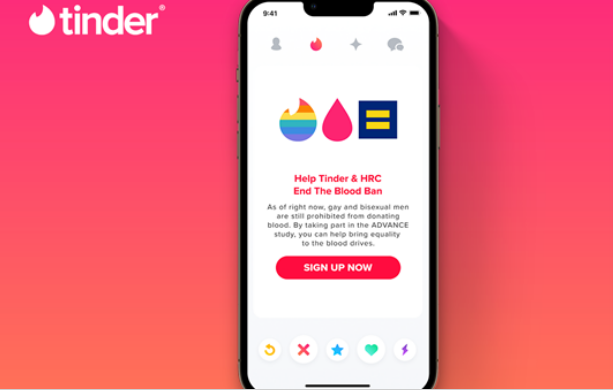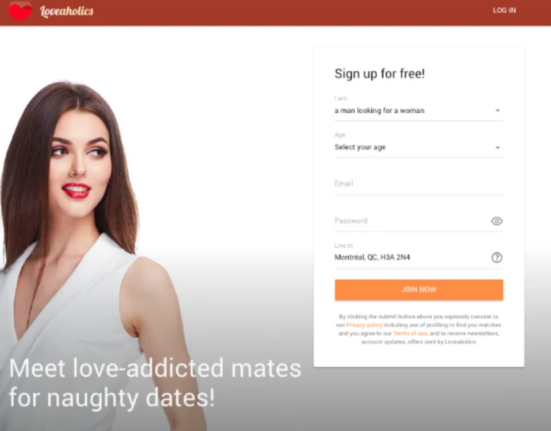Last Updated on September 29, 2022 by Rachel Hall
There are moments in your life when you receive news that is so shattering, you remember exactly where you were when you heard it. The queen’s death, the time you became a sibling, that sort of thing. When I found out that the Supreme Court in the USA was planning on revoking widespread access to abortion, I was at a comedy gig. I’d be lying if I said that it didn’t ruin the experience.
Because it’s foul enough to know that a few crusty creeps think they should decide what happens with my body, and the bodies of everyone else with a uterus, there’s also the sinking feeling that they’re only just getting started. Leaked documents suggest that the US Supreme Court will be looking to reverse interracial marriage, same-sex marriage and equal rights for the LGBTQIA+ community.
What Is Tinder Doing?
An unexpected ally is Tinder. In a press release available on the ‘Newsroom’ part of their website, Tinder and Match Group (the parent company) updated their continued support for the ‘Respect for Marriage’ Act. I do not know the complexities of the American legal system, but it seems that this act will protect same-sex and interracial marriages, and has to pass the house and the senate.
This will then mean that the Supreme Court cannot revoke marriage equality and can, frankly, fuck off. Tinder is doing this by directly educating its users and then providing them with contact information so they can urge their senators to vote for the act. It seems like a great way to get normal people involved in politics, protect crucial rights and give Tinder some good PR.
What Else Has Tinder Been Up To?
Tinder’s whole plan when it launched was just ‘Grindr for the heteros’, but it’s become more inclusive and is taking the opportunity to advocate for LGBT+ rights. It seems that this isn’t the first time they’ve worked to support the LGBT+ community: they have installed features that actually block their app in countries where it isn’t safe to be LGBT+, and they’ve worked to end AIDS-era policies that prevent men who love men (MLMs, but not the pyramid scheme type) from donating blood. The policy was ineffective and homophobic, and the USA is well rid of it.
How Much Influence Should Tinder Have?
Some people might argue that a private company has no business getting involved and lobbying for different laws, but I don’t find that argument convincing. Tinder is being upfront about what they’re doing, rather than quietly ‘donating’ to their favourite politicians, and this is an issue close to many of their user’s hearts. The ‘Respect for Marriage’ Act will directly affect many of the people on Tinder, and it provides an opportunity for straight users to be active in their allyship.
It’s naive to assume that corporations don’t have considerable influence, and it’s nice to see that power being utilised for good. Also, because Tinder is a private company, anyone who disagrees with Tinder’s stance does not have to use its services. To be honest, though, anyone who opposes same-sex marriage or interracial marriage doesn’t deserve love or affection and can join the Supreme Court in fucking off.
Conclusion
The moments after Roe vs Wade was overturned were hard. Again, I don’t live in the USA, but the blow to reproductive rights reverberated around the world. The stories of sexually abused children now being forced into pregnancy were chilling, and the knowledge that so many unwanted babies were about to be born wasn’t much nicer. Nobody should be pregnant if they don’t want to be, and birth control isn’t 100% reliable. Including abstinence, the favourite of some Christians, because famously, Mary was a virgin when she got pregnant.
The only heartening thing in a very, very difficult time was the response from different communities. Arrangements were made to transport pregnant people to areas where they could get abortions, and data suggests that a lot more people are registering to vote and remove anti-choice politicians. People will fight for their rights. Right now, that’s exactly what Tinder is doing, and for that, I appreciate them.

Rachel Hall, M.A., completed her education in English at the University of Pennsylvania and received her master’s degree in family therapy from Northern Washington University. She has been actively involved in the treatment of anxiety disorders, depression, OCD, and coping with life changes and traumatic events for both families and individual clients for over a decade. Her areas of expertise include narrative therapy, cognitive behavioral therapy, and therapy for traumatic cases. In addition, Rachel conducts workshops focusing on the psychology of positive thinking and coping skills for both parents and teens. She has also authored numerous articles on the topics of mental health, stress, family dynamics and parenting.








Leave feedback about this